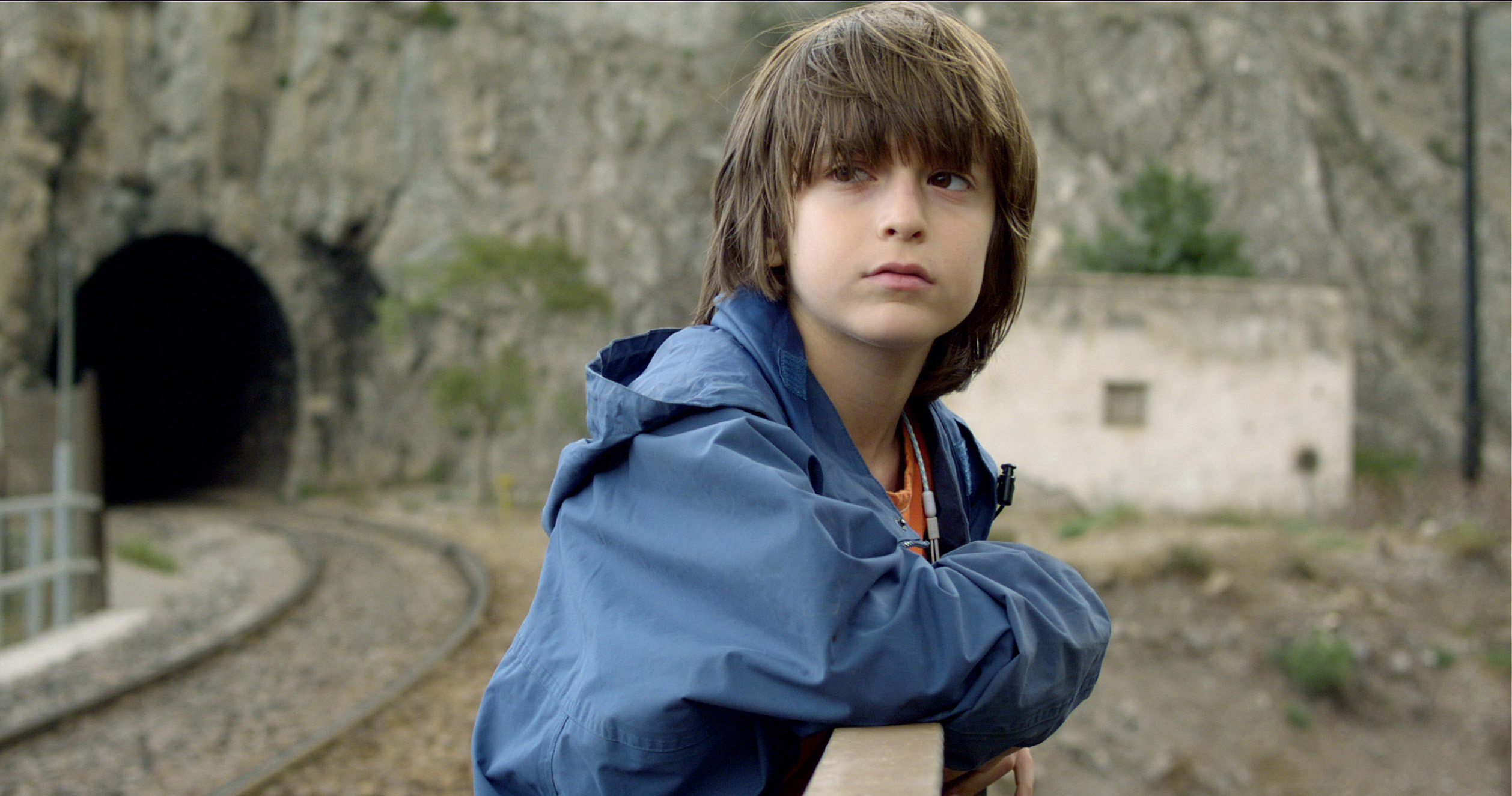UCLA Film & Television Archive honors accomplishments of Iranian filmmakers

UCLA FILM & TELEVISION ARCHIVE
MOURNING (2011), directed by Morteza Farshbaf.
Celebration of Iranian Cinema
Through April 29
Billy Wilder Theater, FREE
April 13 – 7:30 p.m. "“ "Mourning" (Iran, 2011)
April 14 – 7:30 p.m. "“ "Ferestadeh (The Mission)" (USA/West Germany, 1984)
April 15 – 7:00 p.m. "“ "Here Without Me (Inja Bedoone Man)" (Iran, 2011)
April 21 – 7:30 p.m. "“ "Three and a Half" (Iran, 2011)
April 22 – 7:00 p.m. "“ "Dead End (Bon Bast)" (Iran, 1977)
April 27 – 7:30 p.m. "“ "Samad Becomes an Artist (Samad Artist Mishavad)" (Iran, 1974)
April 28 – 7:30 p.m. "“ "Checkpoint" (USA, 1987)
April 29 – 7:00 p.m. "“ "Good Bye (Be Omid E Didar)" (Iran, 2011) and "This is Not a Film" (Iran, 2010)
SOURCE: cinema.ucla.edu
Compiled by Stanton Sharpe, A&E contributor
By Stanton Sharpe
April 12, 2012 11:57 p.m.

UCLA FILM & TELEVISION ARCHIVE
GOODBYE (2011), directed by Mohammad Rasoulof.
Correction: The original version of this article contained an error. Morteza Farshbaf is the filmmaker that the UCLA Film & Television Archive flew in from Iran.
While filmmaking in Hollywood frequently pushes the boundaries and is celebrated for its provocation, the same cannot be said for filmmakers in Iran, where the writing, acting and craftsmanship ““ rather than a high budget or celebrity ““ are crucial to the film industry.
This weekend the UCLA Film & Television Archive will honor the accomplishments of Iranian filmmakers in the “UCLA Celebration of Iranian Cinema,” a series that showcases Iranian films that will run through April 29 at the Billy Wilder Theater.
The series celebrates decades of Iranian cinema, featuring movies that span from 1977 to the present. The “Celebration of Iranian Cinema” is one of the only programs that UCLA does consistently from year to year, said Shannon Kelley, head of public programs for the UCLA Film & Television Archive and curator of the event.
“It’s close to our hearts because we began doing it two decades ago when (showing Iranian films) wasn’t being done in the United States very much at all,” Kelley said.
This year’s event will feature a special guest ““ Parviz Sayyad, an Iranian expatriate filmmaker. The UCLA Film & Television Archive will show a selection of his work from both his years in Iran and his years in the United States since the ’70s. Some of these films will include “Dead End,” “Ferestadeh,” “Samad Becomes an Artist” and “Checkpoint”.
Latifeh Hagigi, a professor in the Near Eastern Languages and Cultures department, said she believes these films have more value to the audience than mere entertainment.
“(The films) bring up the political issues that are very challenging for Iranian people and the problems that women or children face. Watching the films gives the audience a chance to see what is going on in other parts of the world and compare it to their own lives here and the opportunities they have in this land,” Hagigi said.
Though Sayyad will be one of the headliners for the series, many other Iranian filmmakers will be represented as well, including Bahram Tavakoli, Naghi Nemati, Mojtaba Mirtahmasb and Jafar Panahi.
“The UCLA Film & Television Archive strives to have a variety of different films representing the cinema of Iran. The diversity is what makes the series … intriguing for us,” said Bita Milanian, executive director of the Farhang Foundation, a non-profit organization that is helping to promote the series.
According to Kelley, the Iranian national government is tightly tied to its film industry, and filmmakers in Iran are required to seek approval before making their films.
However, Kelley also said that directors Panahi and Mohammad Rasoulof both created films without complying with this law and are now facing possible legal repercussions that include house arrest and a 20-year ban from creating films in Iran.
“Both of these directors are cutting edge in terms of their formal approach to film and also the complexity of their ideas,” Kelley said. “So we are getting excited to track their work and are very sad that we might not see more work from them for another couple of decades”.
Two films by Panahi (“This is Not a Film”) and Rasoulof (“Good Bye”) will be shown as a double feature on the final day of the festival, April 29.
Controversies like these may have created the necessary buzz that Iranian Cinema needs to expand its publicity. Kelley pointed out that not only are there a number of Iranian Americans in Los Angeles who very strongly support the series and have been both very present and vocal every year, but there have been more and more students at the series every year.
For Kelley, the “Celebration of Iranian Cinema” is a privilege that only UCLA students and Los Angeles citizens are given the opportunity to participate in.
“Living in Los Angeles, I think we tend to take for granted these cultural opportunities, but there are a lot of places you’d never see a thing like this on the screen at all, let alone with filmmakers present,” Kelley said.


